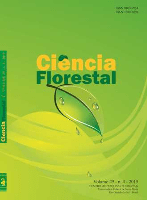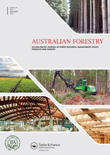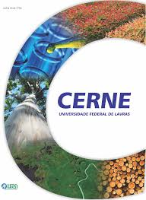
SILVA FENNICA
Scope & Guideline
Fostering Sustainable Practices Through Open Access Research
Introduction
Aims and Scopes
- Forest Ecology and Management:
Research focusing on the ecological dynamics of forests, including species interactions, biodiversity, and forest recovery processes. - Remote Sensing and Monitoring:
Utilization of advanced technologies such as LiDAR, UAVs, and hyperspectral imaging to monitor forest attributes and changes over time. - Forest Economics and Policy:
Analysis of the economic implications of forest management practices, policy impacts, and the role of forests in sustainable development. - Silviculture and Forest Operations:
Studies on silvicultural practices, including planting density, mechanical site preparation, and harvesting methods to optimize forest productivity. - Climate Change and Forest Resilience:
Investigating the effects of climate change on forest health, species distribution, and management strategies to enhance resilience. - Biodiversity and Conservation:
Research aimed at understanding and mitigating the impacts of forestry practices on biodiversity and ecosystem services.
Trending and Emerging
- Integration of Technology in Forestry:
There is a significant rise in studies employing advanced technologies such as artificial intelligence, remote sensing, and UAVs for forest monitoring and management. - Sustainability and Ecosystem Services:
An increasing number of publications are focusing on sustainable forest management practices and the provision of ecosystem services, highlighting their importance in forest policy. - Climate Adaptation Strategies:
Research addressing climate adaptation strategies for forests is on the rise, emphasizing the need for resilience in forest ecosystems under changing climatic conditions. - Interdisciplinary Approaches to Forest Research:
Emerging themes reflect a growing trend towards interdisciplinary research that combines ecology, economics, and social sciences to address complex forest management issues. - Biodiversity Monitoring and Conservation Strategies:
There is a heightened interest in studies aimed at monitoring biodiversity and developing conservation strategies within managed forests, underscoring the importance of maintaining ecological integrity.
Declining or Waning
- Traditional Forest Inventory Methods:
The reliance on conventional forest inventory methods appears to be declining as more advanced technologies like remote sensing and UAVs gain traction. - Single-Species Management Approaches:
There is a noticeable decrease in studies focusing solely on single-species management, with a growing emphasis on multi-species and ecosystem-based approaches. - Historical Forestry Practices:
Research centered on historical forestry practices has waned, possibly due to the increasing focus on contemporary issues and modern management techniques. - Non-Technical Aspects of Forestry:
The exploration of sociocultural and non-technical aspects of forestry seems to be diminishing, as the journal places more emphasis on empirical and technical studies.
Similar Journals

Forest Ecosystems
Fostering innovation in forestry and ecology.Forest Ecosystems is a prestigious open access journal published by KEAI PUBLISHING LTD, dedicated to advancing knowledge in the fields of forestry, ecology, and conservation. Established in 2014 and located in Beijing, China, this journal has rapidly gained prominence, achieving Q1 status in multiple categories, including Ecology, Evolution, Behavior and Systematics, and Forestry in 2023. With an impressive rank of 19 out of 174 in the Scopus category of Agricultural and Biological Sciences - Forestry, it stands in the 89th percentile, reflecting its influential contributions to the field. The journal fosters scholarly discourse and disseminates innovative research aimed at understanding forest ecosystems and their vital role in our environment. Offering a robust platform for researchers, professionals, and students, Forest Ecosystems ensures accessibility through its open access format, enabling a wider audience to engage with and benefit from cutting-edge research dedicated to the stewardship of forest resources.

CIENCIA FLORESTAL
Empowering Insights into Forest EcosystemsCIENCIA FLORESTAL is a premier open-access journal published by the Universidade Federal de Santa Maria, dedicated to advancing knowledge in the field of Forestry. Established in 1991, it provides a vital platform for researchers, professionals, and students to disseminate innovative research findings and methodologies. With an ISSN of 0103-9954 and an E-ISSN of 1980-5098, this journal offers extensive access options for a global audience, ensuring that key scientific discoveries in forest science are available to all. The journal is recognized for its contribution to the scholarly community, currently ranked in the Q3 category within the Forestry discipline, reflecting its commitment to quality and relevance in research. CIENCIA FLORESTAL covers a wide array of topics related to forestry practices, environmental sustainability, and biological sciences, making it an essential resource for those seeking to deepen their understanding of forest ecosystems and their management. Whether you’re a seasoned researcher or a student embarking on your academic journey, CIENCIA FLORESTAL stands as an invaluable asset in the exploration and development of forestry sciences in Brazil and beyond.

Madera y Bosques
Pioneering Insights into Forestry ChallengesMadera y Bosques is a prominent academic journal specializing in the fields of forestry and wood science, published by INST ECOLOGIA A C in Mexico. With an ISSN of 1405-0471 and an E-ISSN of 2448-7597, it has established itself as a vital platform for disseminating research findings, innovative practices, and methodologies pertinent to sustainable forest management and ecological conservation. Operating since 2008, the journal covers a wide scope of topics related to the complexities of forest ecosystems, the importance of biodiversity, and the challenges posed by climate change. Despite its categorization in Q4 for the year 2023 in the Forestry category, Madera y Bosques aims to elevate discourse and practice in the field, providing a voice to emerging researchers and seasoned professionals alike. Additionally, the journal adheres to open access principles, enhancing the visibility and accessibility of its articles to a global audience. Researchers and practitioners are encouraged to engage with its rich content to further their understanding and impact in the world of forestry.

Journal of Forest Science
Exploring the intersection of ecology and forestry.Journal of Forest Science, published by the Czech Academy Agricultural Sciences, serves as a pivotal resource in the field of forestry and soil science. With its ISSN 1212-4834 and E-ISSN 1805-935X, this Open Access journal has been delivering insightful research since 2003, making knowledge freely available to researchers and practitioners globally. Hailing from the Czech Republic, the journal has established a notable impact within the academic community, as evidenced by its placements in the Q2 quartile for Forestry and Q3 for Soil Science according to the latest rankings. This positions the Journal of Forest Science favorably within academic discourse, ranking #73 out of 174 in Forestry and #84 out of 159 in Soil Science on Scopus, placing it at the 58th and 47th percentiles respectively. Covering a wide range of topics that intersect with environmental sustainability, forest management, and ecological research, the journal aims to foster innovation and collaboration within the scientific community. Researchers, professionals, and students can access published articles easily, bolstering the advancement of knowledge in forest science and its related disciplines.

AUSTRALIAN FORESTRY
Elevating the Discourse on Forestry ScienceAustralian Forestry is an esteemed journal dedicated to advancing knowledge in the field of forestry and related environmental science. Published by Taylor & Francis Australia, this journal plays a pivotal role in disseminating high-quality research that spans various aspects of forestry, including sustainable management, conservation practices, and policy analysis. With an impact factor reflecting its significance in the academic community and a Scopus rank of #44 out of 174 in the category of Agricultural and Biological Sciences, Australian Forestry proudly holds a Q2 ranking in its field as of 2023. The journal has maintained a continuous publication record since its inception in 1936, with a commitment to addressing contemporary challenges within forestry. Researchers, professionals, and students alike are invited to engage with this vital resource that fosters insightful dialogue, innovative solutions, and a deeper understanding of forestry science.

Cerne
Pioneering Research for the Future of ForestryCerne is a distinguished open-access journal dedicated to advancing knowledge in the field of forestry, published by the Universidade Federal de Lavras (UFLA). Since its inception in 1994, the journal has actively contributed to the global discourse on sustainable forest management and biodiversity conservation, presenting research findings that are both relevant and impactful. With its ISSN 0104-7760, Cerne aims to foster collaboration among researchers, professionals, and students, enhancing the understanding of forestry practices in Brazil and beyond. As of 2023, it holds a respectable Q3 ranking in the forestry category, further cementing its position within the academic community, illustrated by a Scopus ranking of #97 out of 174 in the Agricultural and Biological Sciences - Forestry field. Operating under an open-access model allows for wide dissemination of research outputs, ensuring that critical findings reach a broad audience, fueling further innovation and discovery in the field. With converged years extending from 2007 to 2024, Cerne continues to be a vital resource for anyone engaged in forestry research and practices.

CANADIAN JOURNAL OF FOREST RESEARCH
Empowering sustainable forestry through cutting-edge research.Canadian Journal of Forest Research (ISSN: 0045-5067, E-ISSN: 1208-6037), published by Canadian Science Publishing, stands as a leading platform for disseminating cutting-edge research in the field of forestry and ecological sciences. With an impressive impact factor and a steady reputation for high-quality publications, this journal occupies a prestigious position indicated by its Q1 ranking in Forestry and Q2 in Ecology as of 2023, alongside commendable placements in global and planetary change studies. Covering a broad scope from sustainable forest management to the impacts of climate change on forest ecosystems, the journal encourages submissions that address contemporary challenges and innovations in forest research. Operating from its base in Ottawa, Canada, the Canadian Journal of Forest Research has been a cornerstone of academic discourse since 1974, offering researchers and professionals vital access to pioneering studies that inform policy and practice in forestry. Researchers, educators, and students alike will find this journal an indispensable resource for advancing knowledge and fostering collaboration in the vital realm of forest research.

FOREST SCIENCE
Connecting scholars and practitioners in forest science.FOREST SCIENCE, published by Oxford University Press Inc, is a pivotal journal in the field of forestry and ecological modeling, boasting an impressive track record since its inception in 1970. With an ISSN of 0015-749X and E-ISSN 1938-3738, the journal provides a valuable platform for the dissemination of high-quality research and studies that address contemporary challenges in forestry and ecology. It ranks in the Q2 category for both ecology and forestry and holds a Q3 ranking in ecological modeling according to the latest evaluations, illustrating its significant contribution to these fields. The journal is accessible through various options, facilitating broad readership and engagement within the academic community. As part of its commitment to advancing knowledge and practices in forest management and conservation, FOREST SCIENCE seeks to bridge theoretical research with practical applications, making it an indispensable resource for researchers, professionals, and students alike.

Lesnoy Zhurnal-Forestry Journal
Fostering Collaboration in Forestry Research and PracticeLesnoy Zhurnal-Forestry Journal is a prominent academic publication dedicated to advancing the field of forestry and environmental sciences. Published by the Northern Arctic Federal University M. V. Lomonosov, this journal focuses on innovative research, practices, and policies related to forestry management and conservation. With an Open Access model established since 2015, the journal ensures widespread dissemination of knowledge and foster collaborative research across global scholarly communities. Located in Arkhangelsk, Russia, the Lesnoy Zhurnal appeals to researchers, professionals, and students alike, providing a platform for sharing valuable insights and addressing emerging challenges in forestry. Though specific metrics like HIndex and Scopus rankings are presently unlisted, the journal is committed to excellence and aims to enhance its visibility and impact within the scientific community. This publication is not only a critical resource for ongoing research but a key player in shaping sustainable forestry practices in a rapidly changing environment, making it indispensable for anyone involved in forestry and environmental studies.

JOURNAL OF TROPICAL FOREST SCIENCE
Advancing Knowledge in Tropical Forest ManagementThe JOURNAL OF TROPICAL FOREST SCIENCE, published by the FOREST RESEARCH INST MALAYSIA, serves as a vital platform for disseminating research focused on tropical forestry. Since its inception in 1988 and transitioning to its current form in 1993, this journal has established itself within the academic community, currently holding a commendable Q3 ranking in the Forestry category, as per the 2023 metrics. With an ISSN of 0128-1283 and E-ISSN 2521-9847, it provides crucial insights into the ecological, economic, and social aspects of tropical forest management and conservation, making it an indispensable resource for researchers, practitioners, and students alike. Although it does not operate under an open-access model, the journal emphasizes quality and relevance in its publications, contributing significantly to the ongoing discourse in agricultural and biological sciences with a Scopus rank of #89 out of 174 and a 49th percentile position.